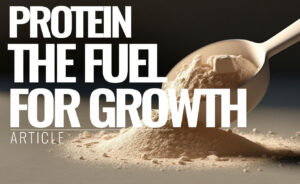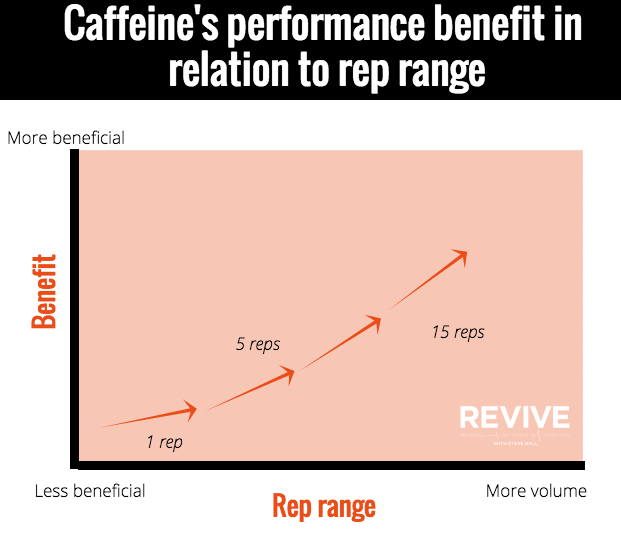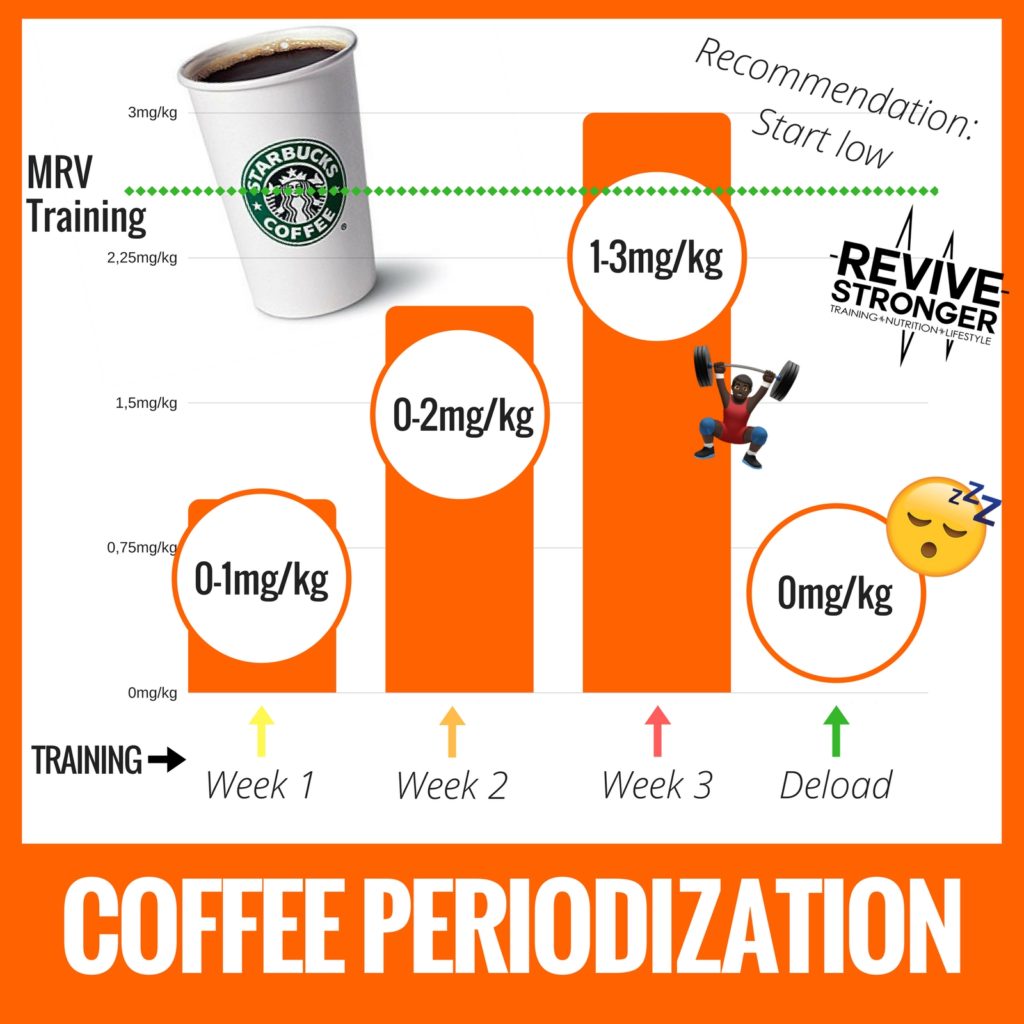
Revive Stronger
Why you should love; Coffee – The black gold

I’m not talking about caffeine…
Caffeine is all good but I’m specifically talking about “The black gold”, “Morning Jolt”, “Brain Juice”, “C8H10N4O2″…(wait, this is caffeine…so forget about that)
…
If you haven’t figured it out yet, I’m of course talking about COFFEE!
It is the second most consumed non-water beverage worldwide.
Only tea is consumed more.
Coffee in itself could be seen as a supplement because it’s made out of different nutriceutical compounds that all have different effects and purposes. Some might even say that it is a drug due to its stimulatory effects and mechanisms in the brain. I can’t avoid turning this article a little bit into a caffeine article as well but when I talk about caffeine, I’m from now on referring to the caffeine consumed via coffee.
For a more in-depth guide about caffeine itself, go here
The term superfood has been thrown around quite extensively in the past years with all kinds of exotic foods and supplements but if you want to put that stamp on one food, coffee would actually be a pretty good fit for it.
Check it:
However, the consumption of coffee is highly controversial…but so is eating red meat, protein, carbs, fats…
…and even though there are hundreds of studies on caffeine, many of them remain questionable.
So why do I, Pascal Flor, love coffee?
Table of Contents
1.] Makes me feel good
“Makes me feel good” is kind of understatement.
Sometimes it can make me feel amazing, which is frightening and great at the same time. In hindsight, I realise that I always built a kind of daily pattern when it came to my coffee consumption.
Usually, I have one cup of coffee right after I get up, which is also about 30-60 min. prior to hitting the gym and then another cup sometime around noon. I tolerate coffee and thus the caffeine quite well, however, this is as always, really individual.
But why?
Coffee is being metabolised like every other nutrient or food you’re consuming and people vary greatly in how their body is able to break down the caffeine and coffee.
Basically, we can split them into two camps
- Slow metabolisers
- Fast metabolisers
We all know that feeling when we get the jitters and feel extremely unrested for the rest of the day. This is how slow metabolisers basically feel most of the time when drinking caffeine. The caffeine doesn’t get processed effectively by those type of people, leaving them with an anxious feeling for an extended amount of time.
On the other hand, we have the fast metabolisers. You probably know someone who’s able to drink coffee right before bedtime or that guy who drinks over a litre a day and still seems to be quite relaxed. They might get a slight bump in energy for a short period, but that’s about it.
This has mostly to do with a gene called CYP1A2 that breaks down caffeine in the liver. A study by Journal of the American Medical Association observed how caffeinated coffee increased the risk of a heart attack for half of the participants and lowered it for the other half. Crazy huh?
As we can see genetics play a role in how those individuals process the coffee.
I don’t know if I’m a fast or slow metaboliser, but coffee makes me feel good. Only a gene test would show, which would be a bit overkill in my opinion, so you could just go by feel and monitor how coffee makes you feel in general.
2.] Improves performance
Another reason why I love this little, oily, black cream is the impact it has on my performance.
There are not many supplements I’d recommend, but caffeine I definitely do (for a free sports supplement guide click here)
Of all the supplements out there, caffeine can have a pretty significant impact on your performance.
Benefits you perhaps can get out of it for your performance:
- Increased cognitive functions (focus for example)
- Power output
- Increased blood flow
- Sympathetic state (aka fight!)
- Higher heart rate
- Lower perception of perceived exertion
Now, without the context of training, some of the facts seem horrible and you definitely don’t want to be in a constant sympathetic state. However, when you’re training, you want your central nervous system to be ready for the task which lies ahead of you. With that in mind, you can structure your caffeine intake around your training blocks and support the body to rest or overreach. For example, you can drop caffeine intake all along when you’re deloading, while on the other hand, you could implement a higher dosage of caffeine pre-workout in your overreaching week.
While consuming coffee without a cyclical approach might be okay for health reasons, periodising your caffeine intake might be something you want to consider when you want to get the most bang for your buck in terms of your training performance.
Coffee has some direct and indirect effects on your body.
Caffeine inhibits the receptors of your Adenosine Antagonists which have a direct impact on dopamine, serotonin and adrenaline. Chronic (long-term) and acute (immediate) intake of coffee will then have different effects. With a prolonged consumption, the body develops a tolerance which can even totally mitigate some of the sweet benefits you’ll experience in regards to your training while still potentially having a negative influence on your sleep.
If you want to get the most out of supplementing with coffee, then you might consider periodising it as well. Not only will a cyclical approach help in terms of your CNS response but also because resensitise you for the stimulatory effects coffee has.
I’d like to say that I’m periodising my coffee consumption as I do with my training & nutrition…but well, we all have things we can optimise, right?
3.] Helps when dieting
Coffee can be a lifesaver when dieting.
There are probably 3 main benefits which stand out the most:
- Reduced fatigue/lethargy
- Hunger suppression
- Metabolic effect
Caffeine is by no means a fat burner but it certainly has a metabolic effect. However, the magnitude of its effect is highly individual depending on genetics and how accustomed you are to caffeine.
There are a couple of really interesting studies on caffeine’s effect on glucose metabolism and insulin but for now, lets only focus on its effects on fat mass, because that’s really what we’re interested in, burning that fluff!
Besides of what I’ve mentioned earlier about its effect being influenced by genetics and tolerance, it seems that the metabolic effect is dose dependent as well with a linear increase up to 9mg/kg.
But wait a second…before you jump the gun and go straight for 9mg/kg, read the following:
Even though it’s clear that caffeine raises your metabolic rate it remains unclear what the best dosage for an increase in metabolic rate is. The literature has shown that caffeine in it for itself has no effect on fat loss *surprise surprise* over the long-term but was associated with greater short-term weight loss. Still, it could be that the underlying effects of caffeine caused the fat loss, Ie. increased NEAT due to stimulatory effect or for example, it’s appetite suppressive effects thus leading to a less total caloric intake.
When looking at the literature, an intake of 1-3mg/kg body weight of caffeine seems to give you all the benefits you’re looking for while not leaving you like a person who’s stuck in the dreamworld together with Freddy Kruger.
4.] Sociable
I pretty much love the taste of coffee, which is kind of odd, because I can remember when I started drinking it.
I actually disliked the pure taste of it.
My girlfriend at that time drank coffee with a whole bunch of milk and I started to drink one or two cups with her as well. A blend of full-fat milk and lots of aspartame made me get used to the taste. Fast forward to today and I need my coffee black and extremely strong now.
Chris Masterjohn talked about something quite interesting in that regard.
Do I really like the taste of coffee or is it the response of my brain on the sensation and effects that are associated with coffee consumption? Ie. is my brain tricking me to like the taste only because it wants to get high?
I really don’t know the answer to it but I think it sounds quite plausible. However, what I do know is that I like the taste of coffee, whether it is my brain tricking me or not.
View this post on InstagramA post shared by PASCAL FLOR – Revive Stronger (@pascal_flor) on
Also, to me, coffee is a way of socialising, in this way it’s kind of the alcohol of the day.
Whether I’m meeting up with friends, family or if it’s a business meeting, most of the time coffee is a part of it. For those of you who aren’t drinking any alcohol, I’m quite sure that you at least once had an argument about why you decided not to drink alcohol. Alcohol has a strong cultural background in many civilisations thus making it so acceptable and a common way to socialise. Even though you don’t get the weird looks if you’re not drinking coffee, it’s a way of being a part of society.
Remember 90% of the US population drinks coffee every day.
It might be up for discussion if that’s actually a good thing, but as long as coffee has no detrimental effects on your health, I think it’s absolutely fine that it have it as a staple in your daily life.
5.] Productivity
I can hear the blasphemists out there already but it really does.
And it’s not just me but dozens of studies support the benefits caffeine has on your cognitive function. When this article is finished, I probably drank a dozen cups…and I can tell you, it was absolutely worth it.
Remember that caffeine acts upon adenosine receptors and prevents you from being in a relaxed state.
Caffeine is a Nootropic, which is basically a supplement that directly influences your brain.
As already stated, due to its neurological effect you’ll be in a state of alertness, thus improving your cognitive function temporarily. This again is dependent on factors such as dose, tolerance, genetics, etc.
While this might come in handy in some situations, the impact on your receptors can be detrimental when you’ll want to be in a relaxed state. Especially I’d say to be cautious when it comes to consuming coffee close to bedtime. In short-term, coffee consumption late at night can increase the risk of insomnia but on the other hand it can also decrease the acute effects of sleep deprivation. Which is something that you’ll experience throughout the majority of the population, that coffee acts as a compensation for the lack of qualitative sleep.
If that’s the case for you, I highly recommend you to take a close look at your habitual coffee consumption and its effect on your sleep. In that regard, I don’t think that coffee is the one to blame for sleep deprivation and that coffee is bad, but what’s bad is chronic sleep deprivation.
That’s why I love; Coffee!
Here you have 5 reasons I love drinking coffee.
Perhaps I could even bring some light into this dark oil and you’re now able to throw out some knowledge bombs at the next coffee meeting…because we all love smartypants, right?
There are tons of studies on caffeine out there. While many of them lack in how applicable they are to the individual but generally the literature suggest a strong tendency for overall positive effects of coffee and caffeine.
Again, there can be so many positive benefits of acute and chronic effects of coffee consumption. However, it boils down to your genetics and how your body processes the caffeine. I’m not saying, go and drink X amount of coffee because you’ll definitely get XYZ benefits of it but depending on why you’re drinking coffee in the first place, whether it is to socialise, you like the taste, or you want to aid your training, you can dose and cycle your coffee consumption accordingly.
Coffee…yeah…coffee

Ps. I’ve written this article spread over a couple of days and probably over a couple of 100gr. of coffee beans were finding it’s a lovely way into my system.
What Next?
Join our free facebook group or add us on Instagram (revivestronger) and ask your question there, I will respond asap. Or if you’re after a fresh training programme we have a free 4 week plan using DUP that you can download for free here.
One more thing…
Do you have a friend who would love the above?
Share this article with them and let me know what they think.
[bctt tweet=”Why you should love; Coffee – The black gold” username=”revivestronger”]
References: (so unbelievably many studies. Not listed all of them, but reach out to us if you’re interested in backing up one of our claims ;))
Duncan MJ, Oxford SW The effect of caffeine ingestion on mood state and bench press performance to failure . J Strength Cond Res. (2011)
Childs E, de Wit H Subjective, behavioral, and physiological effects of acute caffeine in light, nondependent caffeine users . Psychopharmacology (Berl). (2006)
Rogers PJ, et al Association of the anxiogenic and alerting effects of caffeine with ADORA2A and ADORA1 polymorphisms and habitual level of caffeine consumption . Neuropsychopharmacology. (2010)
Holtzman SG CGS 15943, a nonxanthine adenosine receptor antagonist: effects on locomotor activity of nontolerant and caffeine-tolerant rats . Life Sci. (1991)
Barry RJ, Clarke AR, Johnstone SJ Caffeine and opening the eyes have additive effects on resting arousal measures . Clin Neurophysiol. (2011)
Haskell CF, et al Cognitive and mood improvements of caffeine in habitual consumers and habitual non-consumers of caffeine . Psychopharmacology (Berl). (2005)
Rogers PJ, et al Absence of reinforcing, mood and psychomotor performance effects of caffeine in habitual non-consumers of caffeine . Psychopharmacology (Berl). (2003)
Pontifex KJ, et al Effects of caffeine on repeated sprint ability, reactive agility time, sleep and next day performance . J Sports Med Phys Fitness. (2010)
Glaister M, et al Caffeine and sprinting performance: dose responses and efficacy . J Strength Cond Res. (2012)
Glaister M, et al Caffeine supplementation and multiple sprint running performance . Med Sci Sports Exerc. (2008)
Schneiker KT, et al Effects of caffeine on prolonged intermittent-sprint ability in team-sport athletes . Med Sci Sports Exerc. (2006)
Paton CD, Lowe T, Irvine A Caffeinated chewing gum increases repeated sprint performance and augments increases in testosterone in competitive cyclists . Eur J Appl Physiol. (2010)
Cook C, et al Acute caffeine ingestion increases voluntarily chosen resistance training load following limited sleep . Int J Sport Nutr Exerc Metab. (2012)
Del Coso J, et al Dose response effects of a caffeine-containing energy drink on muscle performance: a repeated measures design . J Int Soc Sports Nutr. (2012)
Mora-Rodríguez R, et al Caffeine ingestion reverses the circadian rhythm effects on neuromuscular performance in highly resistance-trained men . PLoS One. (2012)
Beaven CM, et al Dose effect of caffeine on testosterone and cortisol responses to resistance exercise . Int J Sport Nutr Exerc Metab. (2008)
Astorino TA, et al Effect of two doses of caffeine on muscular function during isokinetic exercise . Med Sci Sports Exerc. (2010)
Pedersen DJ, et al High rates of muscle glycogen resynthesis after exhaustive exercise when carbohydrate is coingested with caffeine . J Appl Physiol (1985). (2008)
Kim TW, et al Caffeine increases sweating sensitivity via changes in sudomotor activity during physical loading . J Med Food. (2011)
Astrup A, et al Caffeine: a double-blind, placebo-controlled study of its thermogenic, metabolic, and cardiovascular effects in healthy volunteers . Am J Clin Nutr. (1990)
Acheson KJ, et al Metabolic effects of caffeine in humans: lipid oxidation or futile cycling? . Am J Clin Nutr. (2004)
Acheson KJ, et al Caffeine and coffee: their influence on metabolic rate and substrate utilization in normal weight and obese individuals . Am J Clin Nutr. (1980)
Caffeine: a double-blind, placebo-controlled study of its thermogenic, metabolic, and cardiovascular effects in healthy volunteers
Caffeine and coffee: their influence on metabolic rate and substrate utilization in normal weight and obese individuals
LeBlanc J, et al Enhanced metabolic response to caffeine in exercise-trained human subjects . J Appl Physiol. (1985)
Poehlman ET, et al Influence of caffeine on the resting metabolic rate of exercise-trained and inactive subjects . Med Sci Sports Exerc. (1985)
Astrup A, et al The effect and safety of an ephedrine/caffeine compound compared to ephedrine, caffeine and placebo in obese subjects on an energy restricted diet. A double blind trial . Int J Obes Relat Metab Disord. (1992)
Pasman WJ, Westerterp-Plantenga MS, Saris WH The effectiveness of long-term supplementation of carbohydrate, chromium, fibre and caffeine on weight maintenance . Int J Obes Relat Metab Disord. (1997)
Westerterp-Plantenga MS, Lejeune MP, Kovacs EM Body weight loss and weight maintenance in relation to habitual caffeine intake and green tea supplementation . Obes Res. (2005)
Racotta IS, Leblanc J, Richard D The effect of caffeine on food intake in rats: involvement of corticotropin-releasing factor and the sympatho-adrenal system . Pharmacol Biochem Behav. (1994)
Gavrieli A1, et al Caffeinated coffee does not acutely affect energy intake, appetite, or inflammation but prevents serum cortisol concentrations from falling in healthy men . J Nutr. (2011)
Caffeine reduces spontaneous energy intake in men but not in women
Norager CB, et al Metabolic effects of caffeine ingestion and physical work in 75-year old citizens. A randomized, double-blind, placebo-controlled, cross-over study . Clin Endocrinol (Oxf). (2006)
Hadjicharalambous M, et al Influence of caffeine on perception of effort, metabolism and exercise performance following a high-fat meal . J Sports Sci. (2006)
Choi OH, et al Caffeine and theophylline analogues: correlation of behavioral effects with activity as adenosine receptor antagonists and as phosphodiesterase inhibitors . Life Sci. (1988)
Smellie FW, et al Alkylxanthines: inhibition of adenosine-elicited accumulation of cyclic AMP in brain slices and of brain phosphodiesterase activity . Life Sci. (1979)
Are methylxanthine effects due to antagonism of endogenous adenosine?
Watson J, Deary I, Kerr D Central and peripheral effects of sustained caffeine use: tolerance is incomplete . Br J Clin Pharmacol. (2002)
Chiu GS, et al Hypoxia/Reoxygenation Impairs Memory Formation via Adenosine-Dependent Activation of Caspase 1 . J Neurosci. (2012)
Dager SR, et al Human brain metabolic response to caffeine and the effects of tolerance . Am J Psychiatry. (1999)
Evans SM, Griffiths RR Caffeine tolerance and choice in humans . Psychopharmacology (Berl). (1992)
Zwyghuizen-Doorenbos A, et al Effects of caffeine on alertness . Psychopharmacology (Berl). (1990)
Kennedy MD, et al The cumulative effect of coffee and a mental stress task on heart rate, blood pressure, and mental alertness is similar in caffeine-naïve and caffeine-habituated females . Nutr Res. (2008)
Sharp DS, Benowitz NL Pharmacoepidemiology of the effect of caffeine on blood pressure . Clin Pharmacol Ther. (1990)
Ammar R, et al Evaluation of electrocardiographic and hemodynamic effects of caffeine with acute dosing in healthy volunteers . Pharmacotherapy. (2001)
Myers MG, Reeves RA The effect of caffeine on daytime ambulatory blood pressure . Am J Hypertens. (1991)
Lovallo WR, et al Blood pressure response to caffeine shows incomplete tolerance after short-term regular consumption . Hypertension. (2004)
Farag NH, et al Hemodynamic mechanisms underlying the incomplete tolerance to caffeine’s pressor effects . Am J Cardiol. (2005)
We are a personal coaching service that helps you achieve your goals. We want you to become the best version of yourself.








